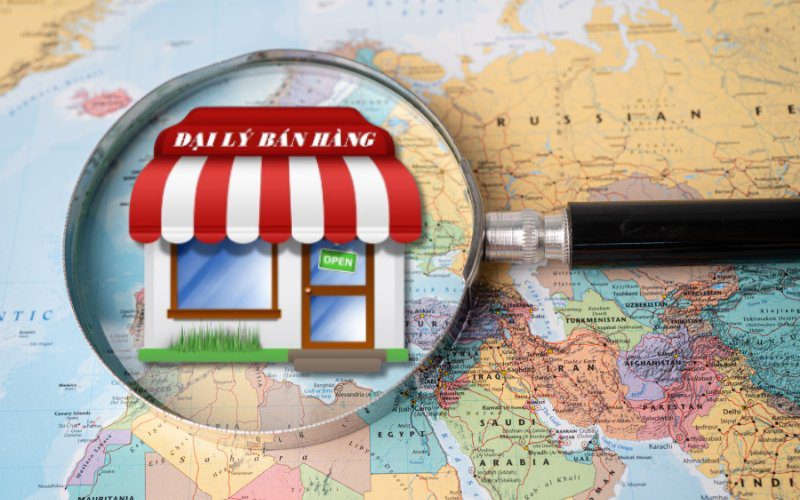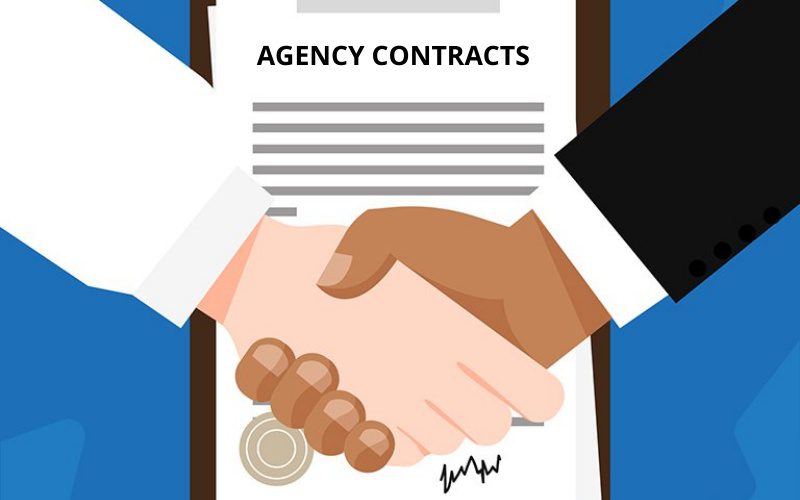Sales agent is one of the common business models today. However, not everyone understands this model well enough to succeed in business. Let’s explore what an agent is with Kamereo in the following article!

What is an agent?
An agent is a legal representative form of a business to carry out the sale of goods. Simply put, a sales agent is an intermediary responsible for distributing products from the business to consumers. According to Article 166 of the Commercial Law 2005, it is stipulated as follows:
“A commercial agent is a commercial activity whereby the principal and the agent agree that the agent, on behalf of the principal, shall purchase or sell goods to the principal or supply services of the principal to customers for remuneration.”
Between the agent and the business, a cooperation agreement must be signed. Accordingly, the agent will proceed to sell the supplied products and receive a commission or service fee from the business as part of the cooperation.

Types of sales agents
Currently, there are many different types of agents, depending on the agreement between the two parties and the regulations of the law. Here are some common forms:
- Commission agent: Responsible for buying, selling the entire quantity of goods, or providing a complete service for the principal. In this form, the selling price of goods is determined by the agent, and their commission is the difference between the purchase price and the selling price.
- Exclusive agent: Operates in a specific geographical area, and the principal selects only one agent to distribute goods or provide services in that area.
- Master agent: A system of agents directly under direct authority to carry out the purchase and sale of goods and provide services to the principal. The master agent represents the entire subordinate agent system and is primarily responsible for managing the agents under its authority.

What are the characteristics of an agent?
Through the information above, you may have understood what an agent is to some extent. However, each form of agent will have its own characteristics. Here are some common characteristics you need to know:
Involvement of three parties
The agent-sales relationship is usually established between the principal and the agent, with specific points as follows:
- The principal is responsible for delivering goods or paying for goods to the agent. In addition, they may authorize the agent to perform supply services.
- The agent receives goods for sale and receives payment from sales. In addition, they may be authorized to provide services.
- To act as an agent, the agent has the right to choose a third party to contract for the purchase or supply of services. However, the agent must comply with specific terms in the contract.
- When signing a contract with a third party, the agent acts on their own behalf and is responsible for fulfilling the obligations under the signed contract. Then, the agent continues to perform the contract of sale or service supply with the third party directly.

Act in their own name for transactions
According to the regulations of commercial agency activities, the agent must be a trader, individual, or economic organization recognized by law. In addition, they engage in regular business activities and have registered business according to Article 6 of the Commercial Law 2005.
Typically, commercial agents have their own headquarters, independent legal personality, and decide on working hours. They exercise their rights and responsibilities and are legally responsible for their activities.
Although they have independent legal personality, agents carry out the process of buying and selling goods or supplying services for the benefit of the principal. They receive remuneration from the service hiring party after completing their work, not from the profits of the buying and selling process.

Scope of activity
The scope of commercial agent activities is limited by authorization from the principal to contract with third parties. Commercial Law 2005 has made adjustments to the scope of agent activities compared to Commercial Law 1997. Accordingly, agents not only operate in the field of buying and selling goods but also supply services.
Specifically, Commercial Law 2005 does not clearly define types of services. For types of goods or services that are prohibited, restricted, or subject to conditions, agents must comply with the regulations of Decree 59/2006/ND-CP.

Origin of agent formation
Commercial agent relationships are established through contracts or agency contracts. This document is considered an agreement between the agent and the principal. In particular, this is the result of agreement from both parties.
According to the provisions of Article 168 of the Commercial Law 2005:
“The agency contract must be made in writing or through other legal means of equivalent value.”

Term of commercial agent
The term for a commercial agent is specifically regulated in Article 177 of the Commercial Law 2005 as follows:
“(i) Except for other agreements, the term of the agent shall only terminate after a reasonable period but not earlier than sixty days from the date either party notifies the other in writing of the termination of the agency contract.
(ii) Except for other agreements, if the principal notifies the termination of the contract as stipulated in (i), the agent has the right to request the principal to compensate a sum of money for the time the agent has worked for the principal.
The value of the compensation is one month’s average agent commission for each year the agent has been an agent for the principal.
In the case where the agent’s term is less than one year, the compensation shall be calculated as one month’s average agent commission during the time of the agent’s agency.
(iii) In the case of termination of the agency contract at the request of the agent, the agent has no right to request the principal to compensate for the time the agent has worked as an agent for the principal.”

Rights and obligations of the principal
Based on Article 172 of the Commercial Law 2005, the legal rights and obligations of the principal are as follows:
“Except for other agreements, the principal has the following rights:
- Determine the purcRequire the agent to implement secuhase price, selling price of goods, and price of service supply for customers;
- Determine the agent’s fee;
- rity measures as prescribed by law;
- Require the agent to pay money or deliver goods under the agency contract;
- Inspect and supervise the implementation of the agent’s contract.”
At the same time, according to Article 173 of the Commercial Law 2005, the obligations of the principal are as follows:
“Except for other agreements, the principal has the following obligations:
- Guide, provide information, and create conditions for the agent to implement the agency contract;
- Be responsible for the quality of goods purchased by the agent, the quality of services provided by the agent;
- Pay commissions and other reasonable expenses to the agent;
- Return the agent’s assets used to secure (if any) when terminating the agency contract;
- Jointly responsible for the legal violations of the agent, if the cause of the legal violations partly caused by their own fault.”

How much is the agent’s commission?
Based on Article 171 of the Commercial Law 2005, there are regulations on forms of payment of remuneration for commercial agents as follows:
“Except for other agreements, the agent’s commission is paid to the agent in the form of commission or price difference.
In cases where the principal determines the purchase price, selling price of goods, or price of service supply to customers, the agent is entitled to a commission calculated as a percentage on the purchase price, selling price of goods, or price of service supply.
In cases where the principal does not determine the purchase price, selling price of goods, or price of service supply to customers but only determines the agent’s fee, the agent is entitled to a price difference. The price difference is determined as the difference between the purchase price, selling price, or price of service supply to customers compared to the price determined by the principal for the agent.
In cases where the parties do not agree on the amount of the agent’s commission, the commission is calculated as follows:
- a) The actual commission that the parties have been paid previously;
- b) In cases where point a cannot be applied, the agent’s commission is the average commission applied to the same type of goods, services that the principal has paid to other agents;
- c) In cases where points a and b cannot be applied, the agent’s commission is the normal commission applied to the same type of goods, services in the market.”

Conclusion
Above are the information about what an agent is that you need to know before deciding to participate in this business model. All rights and obligations of the parties are regulated by the Commercial Law. Therefore, you can refer to this law to understand more clearly. Follow the Supply – Raw materials section for more interesting information about business!
Read more:
Join the exclusive Flavors of Japan event co-hosted by Kamereo and Gyomu Japan in Hanoi, promising a valuable opportunity for F&B businesses to access authentic Japanese ingredients and optimized, sustainable sourcing solutions.




